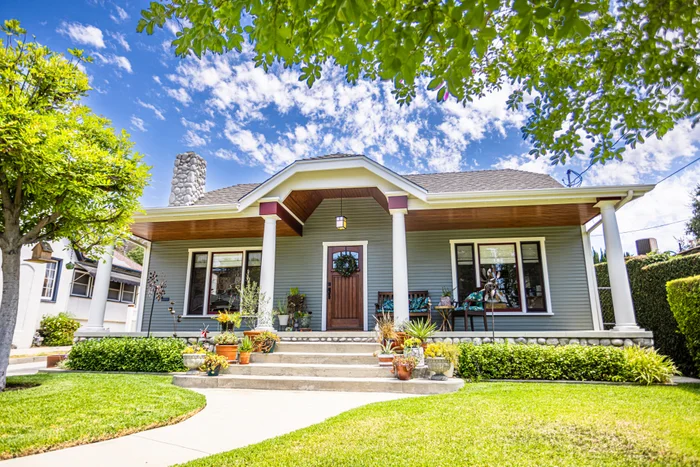When it comes to protecting your most valuable asset—your home—having the right insurance is essential. Whether you’re a first-time buyer or a seasoned homeowner, understanding the process of obtaining a home insurance quote can help you make informed decisions and save money.
What is a Home Insurance Quote?
A home insurance quote is an estimate of how much you’ll pay for an insurance policy to cover your home and belongings. Insurance companies base these quotes on various factors, such as the location, size, and condition of your home, as well as your personal circumstances.
By comparing quotes from different providers, you can find the coverage that best fits your needs at a competitive price.
Why is Getting a Home Insurance Quote Important?
- Cost Comparison: Quotes help you compare prices and avoid overpaying.
- Coverage Insights: You’ll understand what each policy covers and excludes.
- Financial Planning: A quote provides a clear idea of your potential monthly or annual costs.
- Peace of Mind: Ensures you’re adequately protected in case of unexpected events like fires, theft, or natural disasters.

Key Factors That Affect Your Home Insurance Quote
1. Location:
Homes in areas prone to floods, hurricanes, or wildfires typically have higher premiums. Insurance providers assess local risks when calculating quotes.
2. Home Value and Rebuilding Cost:
The value of your home and the estimated cost to rebuild it directly impact your premium. High-value homes or those with unique features may require additional coverage.
3. Coverage Limits and Deductibles:
The amount of coverage you choose (for dwelling, personal property, and liability) and your deductible (the amount you pay out of pocket before insurance kicks in) influence your quote. Higher deductibles usually mean lower premiums.
4. Home Features and Security Systems:
Safety features like smoke detectors, burglar alarms, and updated electrical systems can lower your premium. Conversely, older homes or those with outdated wiring may cost more to insure.
5. Claims History:
If you’ve filed multiple claims in the past, you may face higher premiums. Insurance companies view frequent claims as a higher risk.
6. Credit Score (in some states):
A good credit score can positively influence your quote, as insurers may see it as a sign of financial responsibility.
Steps to Get an Accurate Home Insurance Quote
1. Gather Information About Your Home:
Be prepared with details such as:
- Square footage
- Year built
- Type of construction (e.g., brick, wood)
- Roof material and age
- Security and safety features
2. Decide on Coverage Levels:
Determine the type of coverage you need. Common types include:
- Dwelling Coverage: Protects the structure of your home.
- Personal Property Coverage: Covers your belongings.
- Liability Coverage: Protects you in case someone is injured on your property.
3. Compare Multiple Providers:
Use online comparison tools or work with an insurance broker to get quotes from several companies.
4. Ask About Discounts:
Look for savings opportunities, such as bundling home and auto insurance, installing safety devices, or being a new customer.
5. Review the Policy Details Carefully:
Ensure you understand the coverage, exclusions, and limits before finalizing your decision.
Common Mistakes to Avoid When Requesting a Home Insurance Quote
- Underestimating Coverage Needs:
Don’t focus solely on the price—make sure the policy provides adequate protection. - Ignoring Policy Exclusions:
Understand what’s not covered, such as flood damage (usually requires separate insurance). - Failing to Update Coverage:
Ensure your policy reflects home upgrades, renovations, or major purchases like jewelry or electronics. - Not Comparing Enough Quotes:
A single quote may not give you the best deal. Compare at least three to five options.

How to Save Money on Your Home Insurance Quote
- Bundle Policies: Combine home and auto insurance for discounts.
- Increase Your Deductible: Opt for a higher deductible to lower premiums.
- Install Safety Features: Smoke detectors, security cameras, and fire extinguishers can reduce costs.
- Maintain a Good Credit Score: Responsible financial habits often lead to lower premiums.
- Review Your Policy Annually: Shop around and negotiate with your insurer when renewing your policy.
FAQs
What information do I need to get a home insurance quote?
You’ll need details about your home’s size, age, location, and construction materials, along with information about your personal belongings and any additional coverage requirements.
How long does it take to get a home insurance quote?
Most providers offer instant or same-day quotes online or over the phone. For more complex homes, it may take a few days.
Can I get a home insurance quote without committing?
Yes, quotes are free and don’t obligate you to purchase a policy. Use them as a tool to compare your options.
Why do quotes vary between companies?
Each insurer uses its own formula to calculate risks and premiums, resulting in price differences.
Does home insurance cover natural disasters?
Standard policies cover certain disasters like fires and storms, but floods and earthquakes often require separate policies.
What happens if I underinsure my home?
If your coverage isn’t sufficient to cover repair or rebuilding costs, you’ll have to pay the difference out of pocket.
Conclusion
Getting a home insurance quote is a crucial step in safeguarding your home and belongings. By understanding the factors that influence your premiums and comparing multiple options, you can find the best coverage at a price that fits your budget. Take your time, ask questions, and ensure you’re fully protected against life’s uncertainties.
